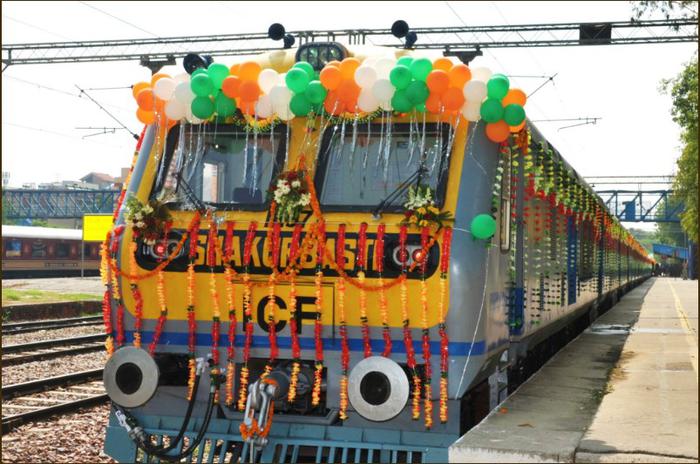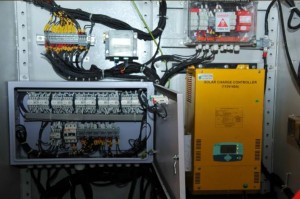Indian Railway’s solar powered train

The Indian Railways have finally launched the first solar-powered train on Friday, the 1,600 HP DEMU, or Diesel Electrical Multiple Unit train. Suresh Prabhu, the Railway Minister, claims this as a large step toward a more environmentally friendly railway system in India.
The train will have a lifespan of twenty-five years, nearly matching the lifespan of its solar panels. However, more trains like this one will soon be made in the future, and hopefully, fully-solar-powered ones will soon follow. With that said, here are some useful facts to know about this train:
The train, which is now stationed at Platform 1 in Safdarjung Railway Station, will travel from the Sarai Rohilla Station in Delhi to the Garhi Harsaru Junction in Haryana on Saturday.
The train has ten coaches, eight of which are passenger coaches and two of which are motor coaches. Out of the eight passenger coaches, six are fueled by solar power. The other four coaches are fueled by diesel, hence the term “Diesel Electrical Multiple Unit”.
This train will replace the former non-solar-powered train on its route and will still travel at the same speed of 110 kilometers per hour.
There will be no changes to the fare of the train, and it will sit eighty-nine people in each coach.
The trip will last an hour and a half, and the train has been fitted with cushioned seats to make the journey a leisurely experience for the customers.
There are sixteen solar panels on each of the solar-powered coaches, each of which holds three hundred watts of power. The panels can store the energy they collect from the sun so it can also be used at night.
The two power sources of the train are parallel, so that if one of them fails, the train will run on the other one.
This train will reduce the emission of carbon dioxide by nine tons per coach per year, and will save about ₹672 croreper year.
Image Reference: Twitter










Leave a Reply